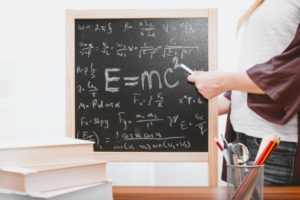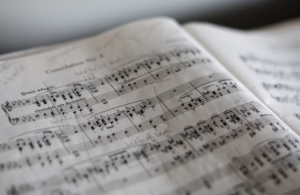Is there a correlation between music and students doing well in math? There are similarities between studying music and studying math.

- Studying music involves looking at patterns, symbols, intervals and scales.
- When we study math, we also look at patterns and scales in geometry, and symbols in algebra.
Let’s examine the ways in which music can help students in their mathematical studies!

5 Ways that Music Helps Students in Math
1. Better Exam Scores
Students who study music are more likely to do well on their exams. In comparison to their nonmusical classmates, students who studied music scored higher on their math exam scores.
2. Advanced Algebra Abilities
Studies show that students who play instruments do better in algebra. The part of the brain that processes music is potentially the same part of the brain that processes algebra. Algebra functions as a building block of math. Hence, having the abilities to do well in algebra can lead to lifelong success in math.
3. Increased Learning of Proportional Math
Younger students who partake in music training show an increase their spatial skills. Spatial-temporal reasoning skills are linked to proportional math concepts such as fractions and proportions. By enhancing their spatial skills through music, these skills can apply to proportional math concepts. Therefore, music training in students can enhance their ability to learn proportions and fractions.

4. Music as a Memorization Math Tool
Research has found that classical music helps students improve their memorization skills. Thus, students listening to music while memorizing how to do math problems or formulas demonstrated better performance. They also demonstrated better memorization of those concepts.
5. Listening to Music Enhances Math Scores
The “Mozart Effect” can be seen while taking math exams. So, students listening to Mozart while taking math exams scored better on the exams than students who did not listen to music.
Written by
Visit the NSTEM page for more posts about our STEM community!

